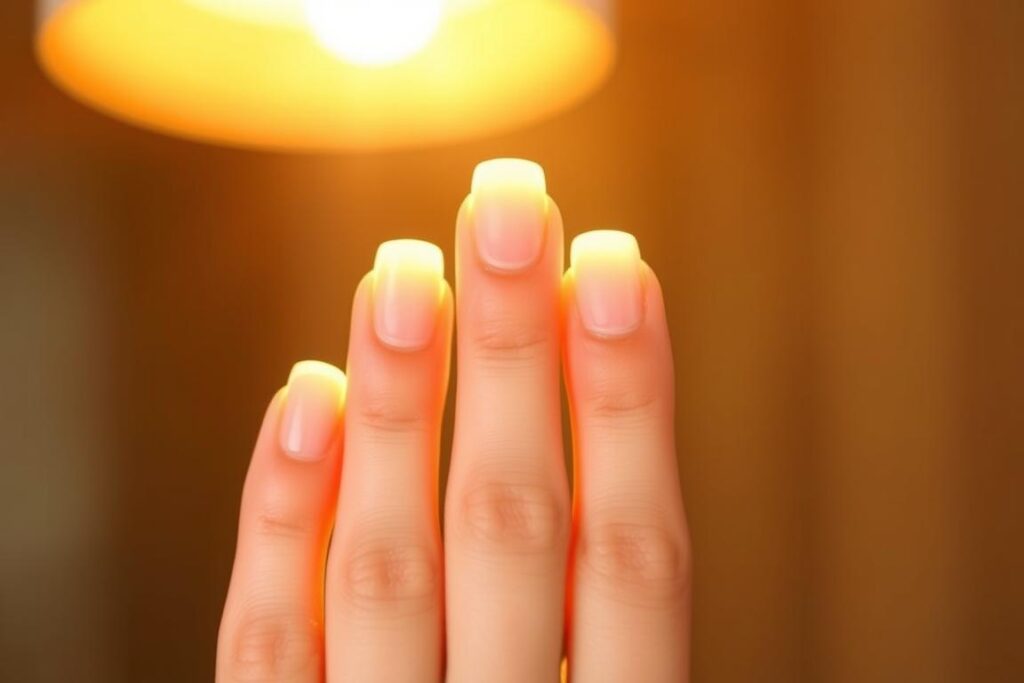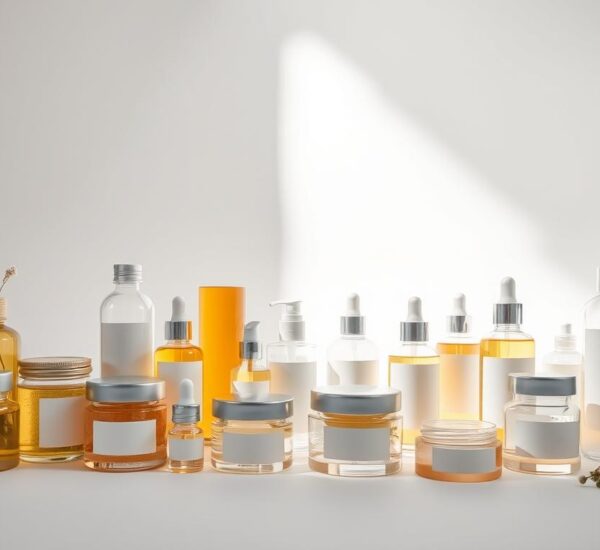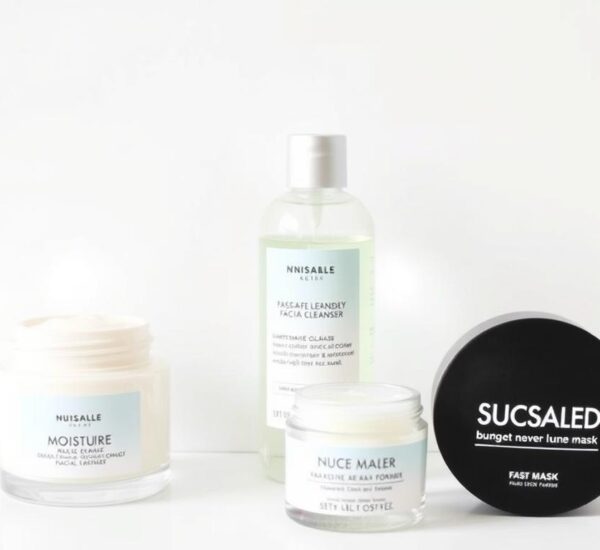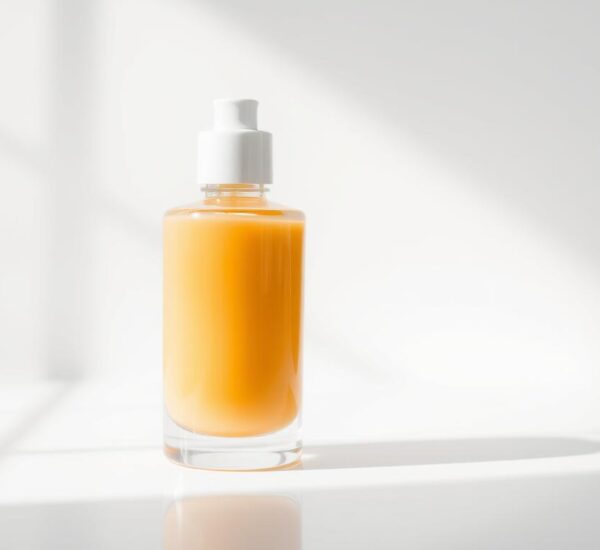Many people dream of having a luminous complexion. It all starts with the right skincare tips for glowing skin. We think that with the right steps, anyone can get radiant, healthy-looking skin.
By following the right skincare routines, living a healthy lifestyle, and using the right products, you can say goodbye to dull skin. We’ll show you the top natural skincare advice to get the skin you want.
Key Takeaways
- Understand your skin type to choose the right products.
- Establish a consistent skincare routine.
- Incorporate essential skincare ingredients for optimal results.
- Maintain healthy lifestyle habits to support skin health.
- Choose products that are suitable for your skin concerns.
Understanding Your Skin Type
Unlock the secret to luminous skin by understanding your skin type. Knowing whether you have dry, oily, combination, or sensitive skin is key. It’s essential for a skincare routine for luminous skin that works for you.
There are several skin types, each with its unique characteristics. Understanding these differences is key to adopting healthy skin habits. These habits promote a glowing complexion.
Different Skin Types Explained
Generally, skin types are categorized into four main types:
- Dry Skin: Characterized by a lack of moisture, dry skin can feel tight and flaky.
- Oily Skin: Oily skin produces excess sebum, leading to a shiny appearance and potentially clogged pores.
- Combination Skin: This skin type combines elements of both dry and oily skin, typically with an oily T-zone.
- Sensitive Skin: Sensitive skin reacts easily to products or environmental factors, often resulting in redness or irritation.
How to Determine Your Skin Type
Determining your skin type involves a simple observation process. Here’s how you can do it:
- Cleanse your face with a gentle cleanser.
- Wait for an hour without applying any products.
- Observe your skin: If it feels tight, you likely have dry skin. If it’s shiny, you have oily or combination skin. If it appears calm and balanced, you likely have normal skin.
By understanding your skin type, you can make informed decisions about your beauty tips for glowing skin. Choose products and routines that are tailored to your specific needs.
Essential Skincare Ingredients for Glowing Skin
Getting a radiant complexion is easier than you think. The right skincare ingredients can brighten, hydrate, and protect your skin. This gives you the glowy complexion you’ve always wanted. Let’s explore the benefits of key skincare ingredients and how to add them to your routine.
Let’s explore the world of skincare and find the top ingredients for a luminous complexion. First, we have Vitamin C, a powerful ingredient known for brightening.
Benefits of Vitamin C
Vitamin C is a strong antioxidant that brightens and protects your skin. It reduces fine lines and wrinkles, making your skin smoother.
- Boosts collagen production for firmer skin
- Fades hyperpigmentation for a more even tone
- Protects against environmental damage

The Role of Hyaluronic Acid
Hyaluronic Acid is key for keeping your skin hydrated. It can hold up to 1000 times its weight in water, making it a great humectant.
- Retains moisture for a hydrated complexion
- Plumps the skin, reducing fine lines
- Soothes dry, irritated skin
Importance of Retinol
Retinol, a Vitamin A derivative, is famous for its anti-aging benefits. It promotes cell turnover, unclogging pores and reducing acne and fine lines.
- Enhances cell turnover for a brighter complexion
- Reduces acne and prevents future breakouts
- Minimizes the appearance of fine lines and wrinkles
For a detailed guide on making a homemade serum with natural ingredients like rosehip oil, check out our article on homemade rosehip oil serum for anti-aging benefits.
Building a Daily Skincare Routine
To get glowing skin, you need a daily skincare routine. A good routine keeps your skin healthy. Knowing your skin type and using the right products is key.
Morning Routine Essentials
Start your day with a gentle cleanser to wash away last night’s dirt. Then, use a toner to balance your skin’s pH. Finish with a moisturizer with SPF to keep your skin hydrated and protected.
Adding antioxidants in the morning helps shield your skin from pollution and other environmental stressors.
Nighttime Care Tips
At night, focus on repair and rejuvenation. Cleanse your skin well to remove dirt, makeup, and pollutants from the day. Use a gentle exfoliant a few times a week to get rid of dead skin cells.
Next, apply a serum or treatment product to tackle specific skin issues. End with a night cream or moisturizer to keep your skin hydrated while you sleep.
| Time of Day | Primary Focus | Key Products |
|---|---|---|
| Morning | Protection and Hydration | Cleanser, Toner, Moisturizer with SPF, Antioxidants |
| Nighttime | Repair and Rejuvenation | Cleanser, Exfoliant, Serum/Treatment, Night Cream/Moisturizer |
Follow these tips and adjust your routine for your skin type. With patience and consistency, you’ll get a radiant complexion.
FAQ
Q: What are some healthy skin habits to maintain a radiant complexion?
A: To maintain a radiant complexion, it’s important to establish a consistent skincare routine, stay hydrated, and protect your skin from harmful environmental factors. Regularly cleansing, moisturizing, and applying sunscreen are key steps in achieving healthy skin.
Q: How can I incorporate beauty tips for glowing skin into my daily routine?
A: To incorporate beauty tips for glowing skin into your daily routine, start by using gentle cleansers and exfoliants to remove dead skin cells. Follow up with nourishing moisturizers and serums that contain ingredients like vitamin C and hyaluronic acid. Don’t forget to apply sunscreen to protect your skin from UV damage.
Q: What is the best skincare routine for luminous skin?
A: The best skincare routine for luminous skin involves a combination of cleansing, exfoliating, and moisturizing. Start with a gentle cleanser to remove impurities, followed by an exfoliant to remove dead skin cells. Apply a nourishing moisturizer and serum to hydrate and nourish the skin, and finish with a broad-spectrum sunscreen to protect against UV damage.
Q: How can I achieve a radiant complexion?
A: To achieve a radiant complexion, focus on establishing a consistent skincare routine, staying hydrated, and protecting your skin from harmful environmental factors. Regularly cleanse, moisturize, and apply sunscreen to maintain healthy and glowing skin.
Q: What are some tips for achieving a radiant complexion?
A: To achieve a radiant complexion, start by using gentle cleansers and exfoliants to remove dead skin cells. Follow up with nourishing moisturizers and serums that contain ingredients like vitamin C and hyaluronic acid. Don’t forget to apply sunscreen to protect your skin from UV damage.
Q: How can I maintain a radiant complexion?
A: To maintain a radiant complexion, it’s important to establish a consistent skincare routine, stay hydrated, and protect your skin from harmful environmental factors. Regularly cleanse, moisturize, and apply sunscreen to maintain healthy and glowing skin.
Q: What are some beauty tips for glowing skin?
A: To achieve glowing skin, focus on using gentle cleansers and exfoliants to remove dead skin cells. Follow up with nourishing moisturizers and serums that contain ingredients like vitamin C and hyaluronic acid. Don’t forget to apply sunscreen to protect your skin from UV damage.
Q: How can I achieve a radiant complexion?
A: To achieve a radiant complexion, start by using gentle cleansers and exfoliants to remove dead skin cells. Follow up with nourishing moisturizers and serums that contain ingredients like vitamin C and hyaluronic acid. Don’t forget to apply sunscreen to protect your skin from UV damage.
Q: What are some tips for achieving a radiant complexion?
A: To achieve a radiant complexion, start by using gentle cleansers and exfoliants to remove dead skin cells. Follow up with nourishing moisturizers and serums that contain ingredients like vitamin C and hyaluronic acid. Don’t forget to apply sunscreen to protect your skin from UV damage.
Q: How can I maintain a radiant complexion?
A: To maintain a radiant complexion, it’s important to establish a consistent skincare routine, stay hydrated, and protect your skin from harmful environmental factors. Regularly cleanse, moisturize, and apply sunscreen to maintain healthy and glowing skin.
Q: What are some beauty tips for glowing skin?
A: To achieve glowing skin, focus on using gentle cleansers and exfoliants to remove dead skin cells. Follow up with nourishing moisturizers and serums that contain ingredients like vitamin C and hyaluronic acid. Don’t forget to apply sunscreen to protect your skin from UV damage.
Q: How can I achieve a radiant complexion?
A: To achieve a radiant complexion, start by using gentle cleansers and exfoliants to remove dead skin cells. Follow up with nourishing moisturizers and serums that contain ingredients like vitamin C and hyaluronic acid. Don’t forget to apply sunscreen to protect your skin from UV damage.
Q: What are some tips for achieving a radiant complexion?
A: To achieve a radiant complexion, start by using gentle cleansers and exfoliants to remove dead skin cells. Follow up with nourishing moisturizers and serums that contain ingredients like vitamin C and hyaluronic acid. Don’t forget to apply sunscreen to protect your skin from UV damage.
Hydration: The Key to Radiance
The secret to radiant skin is hydration. It’s not just about drinking water. It’s also about how well your skin keeps moisture. When your skin is well-hydrated, it looks plumper, smoother, and more radiant.
Drinking Water for Healthy Skin is key. Water helps remove toxins from the body, improving skin health. Aim for at least eight glasses a day. But, your needs can change based on your activity level, climate, and health.
Drinking Water for Healthy Skin
Drinking enough water is vital for skin elasticity and hydration. Even mild dehydration can make skin look dull and tired. Drinking enough water helps your skin stay healthy and glow. It also helps regulate body temperature, which affects skin health.
To boost water’s benefits, eat hydrating foods like watermelon and cucumbers. They have lots of water.

Moisturizers to Consider
While drinking water is key, using the right moisturizer is also vital. Moisturizers lock in moisture, preventing water loss. Choose moisturizers with hyaluronic acid, ceramides, and niacinamide for their hydrating benefits.
There are many moisturizers for different skin types. For oily skin, choose lightweight, oil-free options. For dry skin, go for richer, more emollient moisturizers.
- For normal to dry skin, consider moisturizers with hyaluronic acid and glycerin.
- For oily skin, gel moisturizers or those labeled “non-comedogenic” are good options.
- For sensitive skin, look for fragrance-free moisturizers that are hypoallergenic.
By drinking enough water and using the right moisturizer, you can get a radiant and healthy complexion.
Sunscreen: Your Best Defense Against Dull Skin
Sunscreen is not just for summer; it’s needed all year for glowing skin. It protects your skin from the sun’s harmful rays. This is key for a healthy, bright look. The sun’s UV rays can damage your skin, causing it to age early and look dull.
Knowing how sunscreen fits into your skincare is important. Sunscreen acts as a shield, blocking UV rays that can harm your skin. By using sunscreen daily, you can lower the risk of sun damage.
Why SPF Matters
The Sun Protection Factor (SPF) shows how well a sunscreen protects against UVB rays. Choosing the right SPF is key for good protection. Most people need a sunscreen with at least SPF 30, as it blocks about 97% of UVB rays.
No sunscreen offers 100% protection. But, a broad-spectrum sunscreen with a higher SPF can help more against sunburn and damage.
Choosing the Right SPF for Your Skin
When picking a sunscreen, think about your skin type and activities. If you have fair skin or spend a lot of time outside, a higher SPF might be better. Even if you have darker skin, using a broad-spectrum sunscreen is a good idea.
For everyday use, SPF 30 is usually enough for most people. But, if you’re sweating a lot or swimming, you might need to reapply sunscreen more often, as the product suggests.
The Impact of Diet on Skin Health
A well-balanced diet is key to healthy, glowing skin. What we eat directly affects our skin’s health. It changes its texture, tone, and look. By choosing the right foods, we can help our skin glow.
Foods That Promote a Dewy Complexion
Some foods are great for a dewy complexion. Leafy greens like spinach and kale are full of antioxidants and vitamins. Berries like blueberries and strawberries are packed with vitamin C and antioxidants.
Fatty fish, such as salmon and sardines, are full of omega-3 fatty acids. These help nourish and reduce inflammation in the skin. Avocados also provide healthy fats that keep the skin hydrated and elastic.
| Food | Benefit | Nutrient |
|---|---|---|
| Leafy Greens | Antioxidant-rich, promotes even tone | Vitamin A, C, and K |
| Berries | High in antioxidants, brightens skin | Vitamin C, Anthocyanins |
| Fatty Fish | Reduces inflammation, nourishes skin | Omega-3 fatty acids |
| Avocados | Hydrates and supports skin elasticity | Healthy fats, Vitamin E |
Nutrients to Add to Your Diet
It’s also important to get enough specific nutrients for skin health. Vitamin C is key for collagen and brightening the skin. Omega-3 fatty acids reduce inflammation and help the skin’s barrier.
For more tips on diet for health, including skin, check out dietary strategies for controlling type 2. It shows how a balanced diet helps manage health.
Eating foods rich in nutrients helps our skin stay healthy and glow. A good diet, along with a skincare routine, is essential for glowing skin.
Stress Management for Better Skin
Getting glowing skin is more than just using creams and serums. It’s about taking care of your whole self, including managing stress. Stress can harm your skin, causing acne, dullness, and even early aging. Learning how stress affects your skin can help you manage it better and get a brighter complexion.
Techniques to Reduce Stress
There are many ways to lower stress, which can help your skin. Yoga is a great choice. It can lower cortisol, improve blood flow, and boost your mood. For example, doing morning yoga can kickstart your day and improve circulation.
Other good ways to reduce stress include meditation, deep breathing, and hobbies that make you happy. Finding healthy ways to handle stress can make your skin better and improve your life overall.
The Connection Between Stress and Skin
Stress makes your body release cortisol, a hormone that’s bad for your skin. High levels of cortisol can make your skin produce more oil, clog pores, and cause acne. It can also weaken your skin’s defense, making it harder to keep moisture in and more prone to damage.
Stress can also make conditions like eczema and psoriasis worse, leading to inflammation and pain. By managing stress, you can reduce these negative effects and help your skin stay healthy and strong. This approach to skincare is key to getting a radiant complexion that shines from the inside out.
Adding stress management to your daily life can change your skin for the better. By combining these practices with a good skincare routine and a healthy lifestyle, you can get the glowing skin you’ve always wanted.
Lifestyle Changes to Elevate Your Skin’s Glow
Getting a glowing complexion is more than just using skincare products. It’s also about living a healthy lifestyle. By making a few simple changes, we can boost our skin health. These changes follow natural skincare advice for radiant skin.
Getting Enough Rest
Sleep is key for skin recovery. Our skin fixes and regenerates itself while we sleep. This helps reduce fine lines and wrinkles. We should sleep for 7-8 hours each night to wake up with glowing skin.
Exercise for Healthy Skin
Regular exercise is vital for radiant skin. It boosts blood flow, nourishing our skin cells. This leads to a healthy, dewy look. Adding exercise to our daily routine supports our skin health and overall well-being.
By combining these lifestyle changes with a good skincare routine, we can get a glowing complexion. This reflects our health and well-being.



